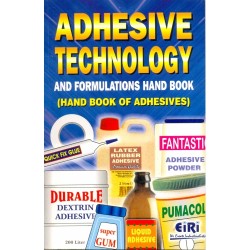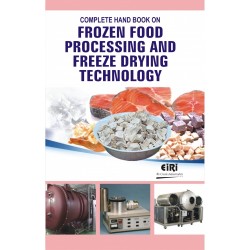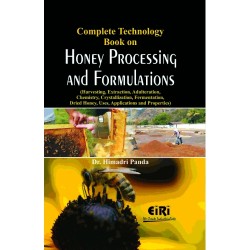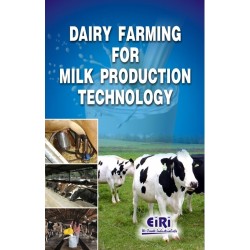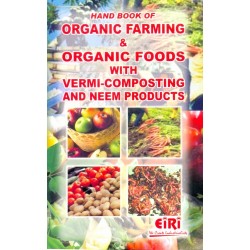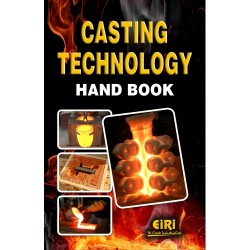Hand Book of Ceramics & Ceramics Processing Technology (E-book)

- More than 40 years of experience
- Managed by expert industrial consultants
- ISO 9001-2015 Certified
- Registered under MSME, UAM No: DL01E0012000
- 24/5 Research Support
Get your quesries resolved from an industry expert. Ask your queries before report or book purchase. - Custom Research Service
Speak to the our consultant to design an exclusive study to serve your research needs. - Quality Assurance
All reports are prepared by highly qualified consultants & verified by a panel of experts. - Information Security
Your personal & confidential information is safe & secure.
Contents-cum-Index for Ebook only
Introduction
- Types of ceramic products
- Examples of whiteware ceramics
- Classification of technical ceramics
- Other applications of ceramics
- Types of ceramic materials
- Crystalline ceramics
- Noncrystalline ceramics
Ceramics vs. Fine Ceramics
- Classification of Ceramics
- Pottery and Ceramics
- Ceramics
- Glass
- Cement
- Refractories
- Grinding Wheels
- Porcelain enamels
- Pottery and Ceramics
- Earthernware
- Pottery
- Stoneware
- Porcelain
- Fine Ceramics
Fine Ceramics Production Process
- Types of Fine Ceramics
- Barium Titanate (BaTiO3)
- Lead Zirconate Titanate
- [Pb(Zr,Ti)O3]
- Ferrite (M2+O.Fe2O3)
- Alumina (Al2O3)
- Forsterite (2MgO.SiO2)
- Zirconia (ZrO2)
- Zircon (ZeO2.SiO2)
- Mullite (3Al2O3.2iO2)
- Steatite (MgO.SiO2)
- Cordierite
- (2MgO.2Al2O3.5SiO2)
- Aluminium Nitride (AIN)
- Silicon Nitride (Si3N4) .
- Silicon Carbide (SiC)
- Fine Ceramic Materials Play an Important Role in Submarine Earthquake Observation
- Self-Surfacing Ocean Bottom Seismograph
- Comparison of Strength and Specific Density Between Fine Ceramics and Metals
Ceramic Matrix Composites
- Fabrication of Ceramic
- Matrix Composites
- by Chemical Vapour
- Infiltration (CVI) .
- Chemical Vapour
- Infiltration (CVI)
- Types of Chemical
- Vapour Infiltration process
- Chemical Vapour
- Infiltration (CVI) process
- Advantages and Disadvantages of Chemical Vapour
- Infiltration (CVI) process
- Fabrication of Ceramic Matrix
- Composites by Liquid phase Infiltration
- Slurry Infiltration
- Process (SIP)
- Reactive Melt Infiltration
- Process (RMI)
- Polymer Infiltration and Pyrolysis (PIP)
- Fabrication of Ceramic
- Matrix Composites by Sol-gel process
- Sol-gel Infiltration - description
- Sol-gel Infiltration process
- Advantages and Disadvantages of Sol-gel Infiltration
- Advantages of Sol-Gel Infiltration
- Disadvantages of Sol-Gel Infiltration
- Self-lubricating ceramic composites
- Solid lubricants, which are used or may be potentially used in selflubricating ceramic composites
- Graphite
- Alumina-graphite
- composite
- Silicon nitride-graphite composite
- Alumina-carbon nanotube composite
- Alumina-CaF2 composite
- Nano-structured alumina-
- FeS composite
- Carbon-Carbon
- Composites
- Structure of Carbon-
- Carbon Composites
- Fabrication of Carbon-
- Carbon Composites by Liquid Phase
- Infiltration process
- Fabrication of Carbon-
- Carbon Composites by Chemical Vapour
- Deposition process
- Properties of Carbon-
- Carbon Composites
- Oxidation protection of
- Carbon-Carbon
- Composites
- Applications of Carbon-
- Carbon Composites
- Structure of composites
- Interfacial bonding
- Shape and orientation of dispersed phase
- Particulate Composites
- Fibrous Composites
- Laminate Composites
- Estimations of composite materials properties
- Rule of Mixtures
- Density
- Coefficient of Thermal
- Expansion
- Modulus of Elasticity
- Long align fibers
- Short fibers
- Shear modulus
- Poisson’s ratio
- Tensile Strength
- Metal Matrix Composites
- Titanium Matrix Composite
- Copper Matrix Composites
- Liquid state fabrication of Metal Matrix
- Composites
- Stir Casting
- Infiltration
- Solvent debinding
- Gas Pressure Infiltration
- Squeeze Casting
- Infiltration
- Pressure Die Infiltration
- Solid state fabrication of Metal Matrix
- Composites
- Diffusion Bonding
- Diffusion
- Pressure
- Sintering
- Hot Pressing Fabrication of Metal Matrix
- Composites
- Hot Isostatic Pressing
- Fabrication of Metal
- Matrix Composites
- Hot Powder Extrusion Fabrication of Metal Matrix Composites
- In-situ fabrication of Metal Matrix Composites
- Advantages of in situ Metal
- Matrix Composites:
- Fabrication of Metal Matrix Composites by codeposition
- Electrolytic co-deposition
- Spray co-deposition
- Vapour co-deposition
- Carbon Fiber Reinforced
- Polymer Composites
- PAN-based carbon fibers (the most popular type of carbon fibers)
- Pitch-based carbon fibers
Ceramics
- Suitable esters are polymers comprising
Ceramic Process
- Preparation of a cermet by electrochemical means
- Example 1: Replication of the shape of a flower
- Example 2: Replication of the shape of a carnation
- Example 3: Replication of the shape of a flower
- Example 4: Replication of the shape of a burdock bush
- Example 5: Replication of the shape of a flower
- Example 6: Heat Treated Cermet Electroplate
Process for Preparing Ceramic Moulding
- Example 1 to 3 and Comparative Examples 1 to 3
- Example 4
- Example 5
- Example 6
- Example 7
- Example 8
-
Example 9
Ceramic-Ceramic Composite Filter
Ceramic-Ceramic Nanocomposite Electrolyte
- Conductivity
- Conductivity
Process for Ceramic Composites
Ceramic Heater
Ceramic Foam
Dried Emulsion Ceramic Process
- Synthesis of Cadmium Zinc Borate Concentrate (Acetate Salts)
- Aqueous Phase Preparation
- Oil Phase Add 2.0 Kg of Surfactant, OLOA- 1200, to a sufficient volume
- Emulsification
- Distillation
- Synthesis of Cadmium Zinc Borate Concentrate (Nitrate Salts)
- Aqueous Phase
- Preparation
- Oil Phase
- Emulsification
- Distillation
- Synthesis of Cadmium Zinc Borate Concentrate (Xylene Oil Phase)
- Aqueous Phase Preparation
- Oil Phase
- Emulsification
- Distillation
Piezoelectric Ceramics
- Preparation of Piezoelectric Ceramic Powder
- Preparation of Spinel Ceramic Powder
- Creation of Piezoelectric Ceramic Containing Spinel Ceramic
- Measurement of Characteristics
Ceramic Processing and Shaped Ceramic Bodies
Ceramic Lever
Ceramic Log Moulding Process
Ceramic Capacitor
- Manganese Oxide Layer
- Iron Oxide Layer
- Cobalt Oxide Layer
- Nickel Oxide Layer
- Zinc Oxide Layer
- Indium Oxide Layer
- Indium Tin Oxide Layer
- Tin Oxide Layer
Brazing Ceramics
Hydroxylapatite Ceramic
Ceramic Igniters
- Igniter Fabrication .
- Additional Igniter Fabrication
- Additional Igniter
- Fabrication
Glass-ceramicbonded Ceramic Composites
Semiconductive Ceramic
Ceramic Bearing
- The First Method
- The Second Method
- Other Methods
Ceramic Powders
Ceramic Armour
Ceramic Decal
Ceramic Cooktop
Ceramic Elements
- Step 11 (S 11 ): Preparation of Slurry for Forming Ceramic Layer
- Step 12 (S 12 ): Formation of Green Sheet
- Step 13 (S 13 ): Formation of Internal Electrode Paste Layer
- Step 14 (S 14 ): Formation of Laminate
- Step 15 (S 15 ): Cutting
- Step 16 (S 16 ): Baking
- Step 17 (S 17 ): Formation of Protective Layer
- Step 18 (S 18 ): Formation of Base Electrode
- Step 19 (S 19 ): Plating
- Comparative Method 1
- Investigation of Protective Layer
- Changes in Insulation Resistance
Ceramic Welding Process
Ceramic Catalysts
Ceramic Powder Transfer Process
Ceramic Susceptor
Ceramic Instrument
Ceramic Board
- Explanation of symbols
- Step of forming the ceramic substrate
- Step of printing a conductor containing paste on the ceramic substrate
- Firing of the conductor containing paste
- Step of forming a metal covering layer
- Fitting of terminal pins and so on
- Step of forming the ceramic substrate
- Step of printing a conductor containing paste on the green sheet
- Step of laminating the green sheets
- Step of firing the green sheet lamination
- Production of a Ceramic Heater
- Production of a Ceramic Heater
- Production of a Ceramic Heater
- Comparative Example 1
- Comparative Example 2
- Industrially Applicability .
Ceramic Waferboard
Ceramic Insulation
Ceramic Decalcomania
Whitlockite Ceramic
Ceramic Microtruss
- Chemical Vapour Deposition
- Ceramic Through Reaction with the Scaffold
- Preceramic Polymers
Ceramic Pigments
The book Hand Book of Ceramics & Ceramics Processing Technology covers Introduction,Ceramics vs. Fine Ceramics, Fine Ceramics Production Process, Ceramic Matrix Composites, Ceramics, Ceramic Process, Process for Preparing Ceramic Moulding, Ceramic Ceramic Composite Filter,Ceramic Ceramic Nanocomposite Electrolyte, Process for Ceramic Composites, Ceramic Heater, Ceramic Foam,Dried Emulsion Ceramic Process, Piezoelectric Ceramics, Ceramic Processing and Shaped Ceramic Bodies, Ceramic Lever, Ceramic Log Moulding Process, Ceramic Capacitor, Brazing Ceramics, Hydroxylapatite ceramic, Ceramic Igniters, Glass ceramicbonded Ceramic Composites, Semiconductive Ceramic, Ceramic Bearing, Ceramic Powders, Ceramic Armour, Ceramic Decal, Ceramic Cooktop, Ceramic Elements, Ceramic Welding Process, Ceramic Catalysts, Ceramic Powder Transfer Process, Ceramic Susceptor, Ceramic Instrument, Ceramic Board, Ceramic Waferboard, Ceramic Insulation, Ceramic Decalcomania, Whitlockite Ceramic , Ceramic Microtruss, Ceramic Pigments.
How to Make Project Report?
Detailed Project Report (DPR) includes Present Market Position and Expected Future Demand, Technology, Manufacturing Process, Investment Opportunity, Plant Economics and Project Financials. comprehensive analysis from industry covering detailed reporting and evaluates the position of the industry by providing insights to the SWOT analysis of the industry.
Each report include Plant Capacity, requirement of Land & Building, Plant & Machinery, Flow Sheet Diagram, Raw Materials detail with suppliers list, Total Capital Investment along with detailed calculation on Rate of Return, Break-Even Analysis and Profitability Analysis. The report also provides a birds eye view of the global industry with details on projected market size and then progresses to evaluate the industry in detail.
We can prepare detailed project report on any industry as per your requirement.
We can also modify the project capacity and project cost as per your requirement. If you are planning to start a business, contact us today.
Detailed Project Report (DPR) gives you access to decisive data such as:
- Market growth drivers
- Factors limiting market growth
- Current market trends
- Market structure
- Key highlights
Overview of key market forces propelling and restraining market growth:
- Up-to-date analyses of market trends and technological improvements
- Pin-point analyses of market competition dynamics to offer you a competitive edge major competitors
- An array of graphics, BEP analysis of major industry segments
- Detailed analyses of industry trends
- A well-defined technological growth with an impact-analysis
- A clear understanding of the competitive landscape and key product segments
Need Customized Project Report?
- Ask for FREE project related details with our consultant/industry expert.
- Share your specific research requirements for customized project report.
- Request for due diligence and consumer centric studies.
- Still haven't found what you're looking for? Speak to our Custom Research Team
About Engineers India Research Institute:
Our Approach
- Our research reports comprehensively cover Indian markets (can be modified as per your country), present investigation, standpoint and gauge for a time of five years*.
- The market conjectures are produced on the premise of optional research and are cross-accepted through associations with the business players
- We use dependable wellsprings of data and databases. What's more, data from such sources is handled by us and incorporated into the report
Why buy EIRI reports?
- Our project reports include detailed analysis that help to get industry Present Market Position and Expected Future Demand.
- Offer real analysis driving variables for the business and most recent business sector patterns in the business
- This report comprehends the present status of the business by clarifying a complete SWOT examination and investigation of the interest supply circumstance
- Report gives investigation and top to bottom money related correlation of real players/competitors
- The report gives gauges of key parameters which foresees the business execution





















